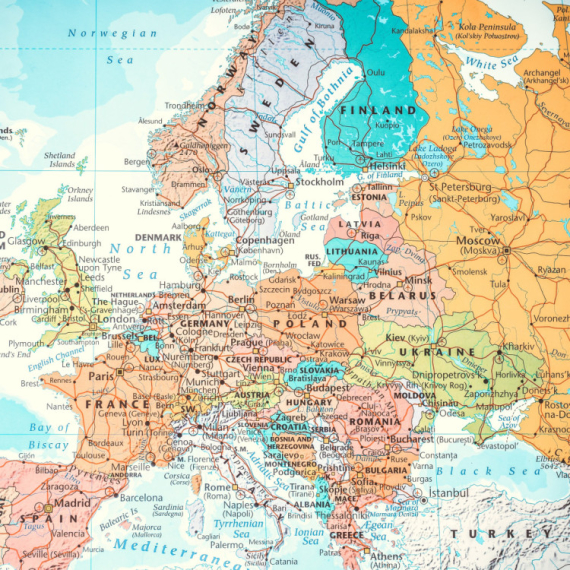"DSS legal analysis unsustainable"
Vladimir Đerić, an expert in international law, says that DSS’s legal analysis of the Stabilization and Association Agreement (SAA) is contestable in its entirety.
Saturday, 07.06.2008.
11:46

Vladimir Djeric, an expert in international law, says that DSS’s legal analysis of the Stabilization and Association Agreement (SAA) is contestable in its entirety. Were recognition of Kosovo independence really to be a criterium for reconsidering international treaties, as the Democratic Party of Serbia (DSS) claims, Serbia could even retract its signature on the UN Charter, says Djeric. "DSS legal analysis unsustainable" He points out that the SAA is a trade agreement that clearly states that Kosovo’s status is not determined. “And they’ve taken something that the SAA explicitly excludes, that the agreement does not refer to or regulate, and interpreted it on that basis. That is not in keeping with the usual methods of interpreting legal norms,” the legal expert observed. In response to the DSS’s view that circumstances have changed since initialing of the SAA—namely, the decision of a number of EU states to recognize Kosovo independence— Djeric says that, under the Vienna Convention on Contract Law, that would be a valid argument were Kosovo’s status at the heart of the agreement, which it is not. “In other words, we would then have to claim that Kosovo’s status was the fundamental basis for our signing the SAA. I don’t think that these things are compatible. Secondly, the change in circumstances, which supposedly is important, had led to a radical change in our obligations towards the SAA. That simply isn’t true, as the agreement itself states that it does not regulate Kosovo’s status, so nor is that argument valid,” he claims. Using the logic that all contracts concluded with countries that have recognized Kosovo independence are unconstitutional, the DSS could call into question any contract signed with those countries, because they clearly no longer perceive Kosovo to be a part of Serbia. Under the same criteria, all international agreements could be called into question, even the UN Charter, as its signatories include countries that have recognized Kosovo. That argument, says Djeric, is unsustainable.
"DSS legal analysis unsustainable"
He points out that the SAA is a trade agreement that clearly states that Kosovo’s status is not determined.“And they’ve taken something that the SAA explicitly excludes, that the agreement does not refer to or regulate, and interpreted it on that basis. That is not in keeping with the usual methods of interpreting legal norms,” the legal expert observed.
In response to the DSS’s view that circumstances have changed since initialing of the SAA—namely, the decision of a number of EU states to recognize Kosovo independence— Đerić says that, under the Vienna Convention on Contract Law, that would be a valid argument were Kosovo’s status at the heart of the agreement, which it is not.
“In other words, we would then have to claim that Kosovo’s status was the fundamental basis for our signing the SAA. I don’t think that these things are compatible. Secondly, the change in circumstances, which supposedly is important, had led to a radical change in our obligations towards the SAA. That simply isn’t true, as the agreement itself states that it does not regulate Kosovo’s status, so nor is that argument valid,” he claims.
Using the logic that all contracts concluded with countries that have recognized Kosovo independence are unconstitutional, the DSS could call into question any contract signed with those countries, because they clearly no longer perceive Kosovo to be a part of Serbia.
Under the same criteria, all international agreements could be called into question, even the UN Charter, as its signatories include countries that have recognized Kosovo. That argument, says Đerić, is unsustainable.


























































Komentari 10
Pogledaj komentare